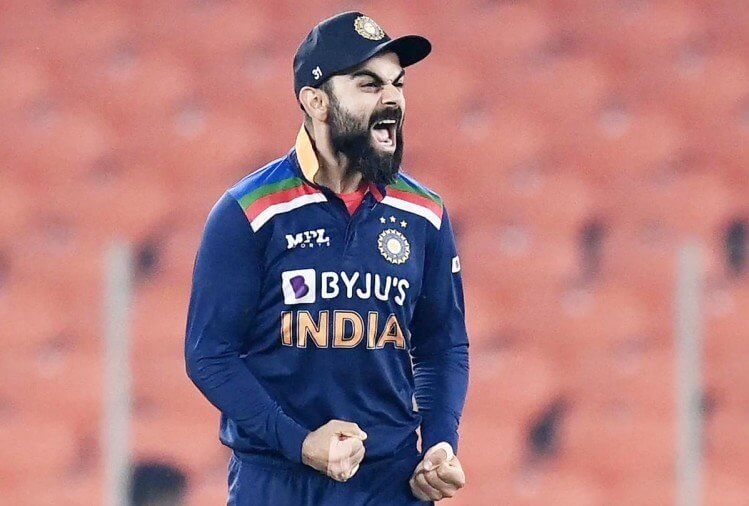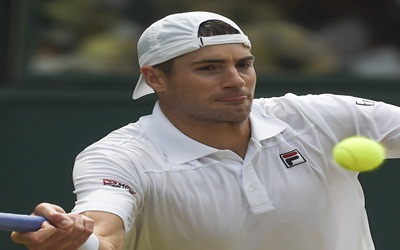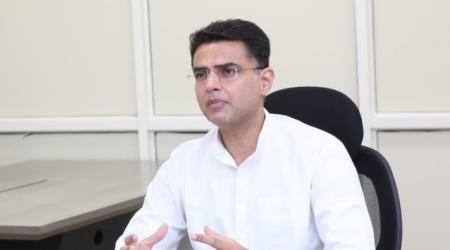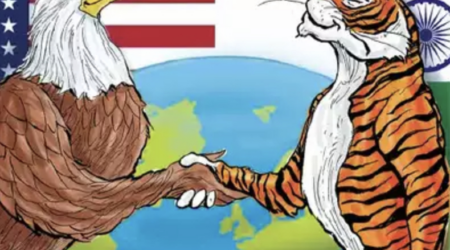Kohli is perhaps being somewhat presumptuous in assuming the BCCI will go along with his wishes and change him only as T-20 captain.
By Shivaji Sengupta
I still remember 2008. The TV showing a flickering image of an eighteen year old Virat Kohli, captain of the India Under 19 team, celebrating his team’s victory in the final over against South Africa, arms akimbo, eyes bulging. His first of many wins at the international level.
I was visiting my father in Delhi. That was my first intro to the man who is now India’s captain in all three formats of cricket but, strangely enough, that 2008 U19 victory is still his only one in which he led the Indian team in any form of cricket World Cup.
That was 13 years ago. Virat is leading the Indian team in the T20 World Cup for the last time. He has announced that after this world tournament, he will no longer captain India’s T-20. His reason? He said he wants to concentrate on his batting. Since he did not mention the Test cricket team or the ODI Indian team, he is implying that he will still be available to lead those teams. Only in T-20, he is contemplating the change.
Kohli is perhaps being somewhat presumptuous in supposing the BCCI will go along with his wishes, and change only the T-20 captain. His desire to concentrate on his batting in this format is praiseworthy although justified. It’s the only form in which he’s never scored an international hundred. In IPL, the pinnacle of T-20 franchise cricket, he’s never led his team, Royal Challengers Bangalore, to a championship while his vice captain in the Indian team, Rohit Sharma, has led his IPL team, Mumbai Indians, to five championships. Add this to the fact he has never won an ICC trophy in any format, his stated reason that he wants to improve his batting needs to be taken with a pinch of salt.

The entire India team attended Ravi Shastri’s book launch in London and many contracted Covid. Many observers blamed Shastri and Kohli for the disappointment of not completing the series in England and returning instead for IPL where the moolah is.
Salt of the earth he is not. Pulling in more than one million dollars a year in salary (which includes IPL contract, BCCI contract and the individual matches he plays for India in Tests, ODI and T-20 – and over two million if you count his endorsements); married to Anushka Sharma, one of the highest paid Bollywood stars; and over a hundred million followers in social media, Virat Kohli is always in the limelight. As such, amidst a sea of successes (already over 50 international centuries, most Test match victories as India’s captain, and fourth highest in the world with at least a quarter of his career still to unfold), his sudden decision to give up the T-20 captaincy begs controversy. His batting is not the reason.

The entire India team attended Ravi Shastri’s book launch in London and many contracted Covid. Many observers blamed Shastri and Kohli for the disappointment of not completing the series in England and returning instead for IPL where the moolah is.
Let’s check some more of the context. Not long before he made his announcement, the coach of the Indian team, Ravi Shastri, who many say, is very much of one mind with the captain, himself landed in hot water by catching Covid in England during India’s tour there. The illness may have been an immediate consequence of Shastri’s throwing caution to the wind and celebrating the launching of his rather ordinary book, “Star Gazing: The Players in My Life.” The whole Indian team attended. Within days, several of them, including the coaching staff, succumbed to Covid. One was the physiotherapist who, by the nature of his work, had been in close contact with the players. They were petrified, and refused to play the last Test match in Manchester with India leading the five-Test series 2-1 after four Tests. The called-off fifth Test, therefore, was crucial for deciding whether India would ultimately win the series. Still in limbo, the outcome of the series hangs in balance.
Many are blaming Shastri and Kohli for the disappointment of not completing the series and returning instead to complete the IPL where the money is. Covid had interrupted the tournament back in May. The noise against Kohli was increasing.
One man was watching in silence. Sourav Ganguly, the former captain of India not too long ago, is now the president of BCCI. He had been an open supporter of Kohli ever since the latter came to Indian cricket. Like Ganguly, Kohli has never thrown in the towel during a cricket contest. Like the captain-turned-president, Kohli wears his emotions on his sleeve. (Who does not remember the scene at Lords in 2002, when Sourav Ganguly, India’s captain, quite literally went sleeveless when he took off his shirt and, bare bodied, whirled it around over his head celebrating India’s victory against England in the Natwest Cup? Kohli is of the same ilk.) So Ganguly had been supporting Virat every step of the way so far.

BCCI under President Saurav Ganguly has picked Rahul Dravid as the new head coach replacing Ravi Shastri. On the development, Kohli said he had no idea.
Now, not so suddenly, there is silence.
I think more is to come. We are waiting for the end of the T-20 World Cup. Already, Shastri will have to relinquish his position as coach though not because of his indiscretion with Covid. Rahul Dravid is set to be appointed the new head coach. I am persuaded that Virat Kohli will also lose the ODI captaincy. He will, however, retain leadership of the Test team. His silence regarding ODI and Tests does not mean he is confident of continuing as captain in both.
More important is Sourav Ganguly’s silence. He probably did not appreciate the fact that the Kohli-Shastri combine kept the world’s No. 2 Test bowler, Ravichandran Ashwin, from all four Test matches in England. That too after he had taken 28 wickets in the recently completed India vs England series in India. Kohli’s “horses for courses” reasoning (picking players according to the nature of the pitch) probably did not go down well with Ganguly. The Selection Committee sent a silent message to the captain by selecting Ashwin for the T-20, the format he was the least likely to be a member of. The player they left out is Yuzvendra Chahal, Kohli’s go-to spinner in the T-20s.
To Kohli the silence was deafening.
So now what? I think the time has come for Kohli to be a little humble. Although he is a never-say-die leader, and under his captaincy India has learned how to turn formality into fight, and although time and again he has carried India’s batting by himself, Virat Kohli IS undergoing a dip in his career. No international centuries since the autumn of 2019, an ordinary showing in this year’s IPL, and, yes, ultimately with no victories in the world’s greatest franchise tournament. Next year he will also not captain Royal Challengers Bangalore.
In his latest press conferences, Kohli was sober, measured and logical. He needs to handle his post-captaincy the same way.

Shivaji Sengupta is a retired Professor of English at Boricua College, New York City. He has a Ph.D. in English and Comparative Literature from Columbia University and has been a regular contributor to The South Asian Times. He is also a cricket buff.












